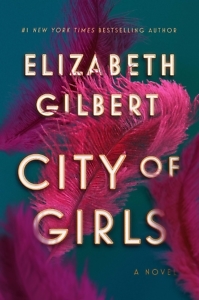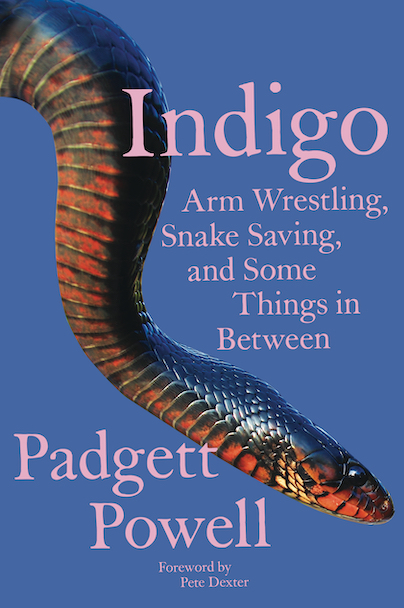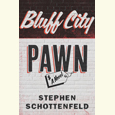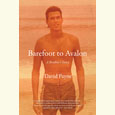Ripe for Excitement
A naïve young woman is captivated by 1940s New York in Elizabeth Gilbert’s City of Girls
Elizabeth Gilbert started her career as a short story writer and magazine journalist, winning kudos for both. Her first novel (Stern Men) and book of nonfiction (The Last American Man) were praised and fêted, and Gilbert seemed the paradigmatic tough-girl writer, able to hold her own with lumberjacks, bartenders, fishermen, and ranch hands.

Everything changed in 2006, when Gilbert’s blockbuster memoir Eat, Pray, Love was published. Since then, the tone of Gilbert’s work has shifted decidedly away from men and what makes them tick, and toward women and what they think, dream, believe, and long for. City of Girls, her latest novel, unfolds entirely from the perspective of Vivian Morris, a “nineteen-year-old virgin” on her way to the city for the first time after flunking out of Vassar. Vivian narrates the whole book as a monologue addressed to a woman named Angela. (Gilbert witholds Angela’s identity and significance until the final chapters.)
The action in this fictional memoir takes place in the New York theater world of the 1940s. Vivian is ripe for excitement, thrilled with her burgeoning new life. She arrives in Grand Central Station with two large suitcases and a crate containing her beloved sewing machine, which she calls her “demented, beautiful soul-twin, without which I could not live.” She’s on her way to meet her mysterious Aunt Peg, who owns and runs a barely successful playhouse on the fringes of the theater district. The zany world backstage entrances Vivian; the actors and actresses are larger than life, their offstage personas more captivating than the roles they play. It’s a seedy wonderland, and our heroine is instantly smitten. “My heart was racing with excitement,” she tells Angela, “and yours would have been too, if you were a frivolous nineteen-year-old girl like me, who’d never had a serious thought in her life.”
 Vivian moves right in with the showgirls and starts acting like one herself, though she never actually performs onstage. (In exchange for room and board, she happily sews and designs all the costumes for the ensemble.) Within two weeks, she’s lost her virginity (“an awfully amusing story that I shall tell you shortly, Angela, if you’ll just be patient with me for a moment longer”). By the end of the summer she’s a pro, having tipsy sex with strangers all over town, in cabs and dressing rooms, in alleyways and ferry boats and offices and rooftops, with a gorgeous actress named Celia as her guide and co-conspirator. “Drunk, pinwheel-eyed, briny-blooded, brainless, weightless — Celia and I spun through New York City that summer on currents of pure electricity,” Vivian reports. “Instead of walking, we rocketed. There was no focus; there was just a constant search for the vivid.”
Vivian moves right in with the showgirls and starts acting like one herself, though she never actually performs onstage. (In exchange for room and board, she happily sews and designs all the costumes for the ensemble.) Within two weeks, she’s lost her virginity (“an awfully amusing story that I shall tell you shortly, Angela, if you’ll just be patient with me for a moment longer”). By the end of the summer she’s a pro, having tipsy sex with strangers all over town, in cabs and dressing rooms, in alleyways and ferry boats and offices and rooftops, with a gorgeous actress named Celia as her guide and co-conspirator. “Drunk, pinwheel-eyed, briny-blooded, brainless, weightless — Celia and I spun through New York City that summer on currents of pure electricity,” Vivian reports. “Instead of walking, we rocketed. There was no focus; there was just a constant search for the vivid.”
It’s all very madcap. Though Vivian drinks like a fish and carouses like a sailor, though she falls in love and gets caught up in a scandal, the consequences of her behavior don’t ever add up to more than temporary discouragements. This is fine, of course (who says wanton women should reap what they sow?) but as Vivian spins weightlessly through the second half of the book, her devil-may-care persona begins to feel slightly more vapid than vivid. We don’t get the sense that she’s wiser or more hardened by having endured. (“Pick up your jaw, kiddo,” Aunt Peg tells her. “You look like you just fell off a turnip truck.”)
Vivian Morris keeps moving, and the things that happen to her are fascinating to watch. This, of course, keeps the pages turning, and City of Girls makes delightful summer reading. It’s a perfect muzzy-headed by-the-pool book, full of spectacle and glitz and reflected bygone glamour. Not till now has Gilbert aimed to write a book that was strictly fun; with this one, she succeeds beautifully. “Never has it felt more important for me to tell stories of joy and abandon, love and recklessness,” Gilbert herself has said about City of Girls. “Life is short and difficult, people. We must take our pleasures wherever we can find them…. So take a break from your troubles, dear ones, and drink it up.” Salud!

From 2012 to 2016, Fernanda Moore was the fiction critic for Commentary. Her work has also appeared in The New York Times Magazine, Marie Claire, New York, and Southern Living, among others.


